HOME | ABOUT US | MEDIA KIT | CONTACT US | INQUIRE
HOME | ABOUT US | MEDIA KIT | CONTACT US | INQUIRE
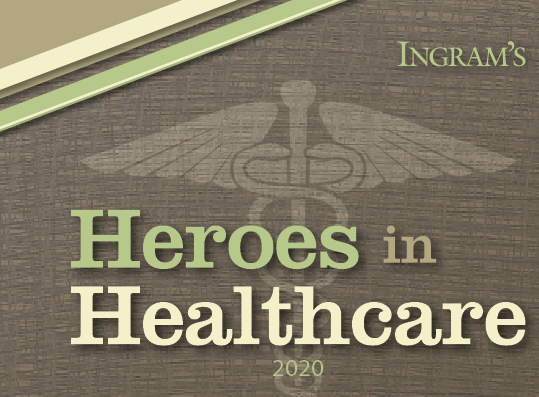
Nominate a Hero in Healthcare for next year!
What You See Is Just The Beginning
Inside the vast web of medical centers, community hospitals, physicians’ offices and health-focused private companies, it’s easy to overlook the individual contributions of the people who define health care in the Kansas City region. But it’s worth a second look.
For among the tens of thousands employed in those endeavors, there are shining stars of care who set standards for their level of commitment to you and your health. Ingram’s launched Heroes in Healthcare in 2004 and since then, we’ve been privileged to showcase the talents, achievements and personal stories that drove each of those honorees to their niche in the system. This year’s honorees again reflect the best of what the region has to offer in the areas of health-care administration, professional and auxiliary services, nursing, volunteer work and lifetime achievement. Please join us in offering our thanks to all for their commitment to care.
ADMINISTRATION
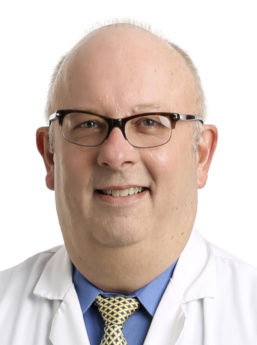 CHARLES BEGGS
CHARLES BEGGS
Liberty Hospital
Charles Beggs has been the cornerstone of general surgery at Liberty Hospital for 30 years, leading the department and saving many lives along the way.
Beggs, who grew up in Liberty, became interested in medicine while shadowing physicians at the hospital as a student. His experience, watching care-givers truly helping people in the most pro-
found ways, secured his desire to pursue a career in medicine. Beggs received his degree from UMKC School of Medicine and completed his general surgery residency at Saint Luke’s Hospital.
Much to his liking, he was able to return to Liberty Hospital and to the town where he grew up, he became a member of the hospital’s medical staff in 1988.
Beggs has been the hospital’s trauma care director since 1997 and it’s his passion, not just a profession. As the face of the hospital’s trauma program, he has been instrumental in maintaining its Level 2 Trauma certification, saving lives of countless trauma victims and educating the hospital’s staff along the way.
Beggs is considered a true advocate for the patients, evidenced by his care, and the trauma program he runs.
“Dr. Beggs has an impeccable reputation in the Liberty community and among his patients,” said fellow surgeon Kirstie Van Ry. “He has served our community with integrity and compassion for the entirety of his distinguished career. He always puts patient care first, and his patient relationships set an example for all physicians.”
A leader serving in various roles including president of medical staff, chair for the department of surgery, the quality and performance-improvement committee, the trauma and critical-
care services committees and trauma services medical director.
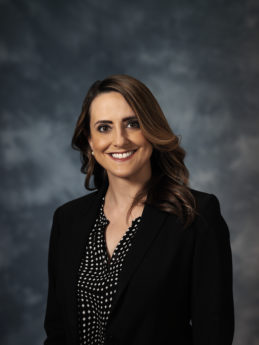 JESSICA LEA
JESSICA LEA
Tria Health
Jessica Lea believes that if you feel well you will also be successful in most aspects of your life, particularly in your relationships and career. It’s this philosophy that has been one of the driving forces behind her career choices.
“I am very focused on health in my personal life,” said Lea, who has a doctorate in pharmacy from the University of Missouri-Kansas City, completed a psychiatric pharmacy residency, a clinical
sciences fellowship in psychiatric pharmacy and an executive MBA from Rockhurst University.
“I think that my desire to choose the health-care field was tied to helping people feel better and achieve their best life,” said Lea, who credits her parents with instilling a strong work ethic in her and a mother who always encouraged Lea and her sisters to pursue an education. “She felt an education was the key to be anything you wanted to be.”
Through her varied work experiences Lea saw that there were gaps in communicating information about medications between providers and patients and identified a need to create a “medication expert” position or use pharmacists to help improve the dialogue between the patient and their providers. That led her to help create Tria Health in 2009 as a way to help people manage their various medications and guide patients to following healthy life habits. Since then the company has partnered with Cerner.
Tria Health utilizes specially trained pharmacists to provide one-on-one counseling to members on their medication regimen. In addition, the pharmacists discuss lifestyle, exercise and other
habits impactful to condition management. The name Tria represents the collaboration among the pharmacist, patient and physician to deliver the best possible health outcomes.
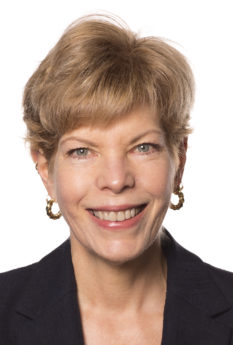 CAROL KEMPER
CAROL KEMPER
Children’s Mercy Hospital
At the wizened age of 13, Carol Kemper and her best friend decided they wanted to be nurses. They went to their local library and read every book they could find on nursing. “We were inspired by their dedication, confidence to handle emergency situations and their skill in providing education to patients to promote wellness and management of chronic conditions,” says Kemper, senior vice president of service and performance excellence at Children’s Mercy, the region’s leading pediatric hospital.
Not only did Kemper go on to get her degree in nursing at the University of Cincinnati, she went further and received a master’s in nursing at Boston College, and in 2009 completed her doctorate at the University of Kansas. The Ohio native moved to Kansas City in 2000 and started working at Children’s Mercy as a quality-improvement nurse with Family Health Partners, then affiliated with the hospital.
Kemper’s personal desire to help others has kept her motivated throughout her 20-year career with
Children’s Mercy. “The most remarkable thing to me is that the idealistic 13-year-old is still alive and well in my adult self,” she said. “I’ve been so fortunate to have a career that allows me to be inspired and awed by my patients and colleagues for all these years.”
Her accomplishments are many and she leads the effort to ensure quality and safe care for all patients, from spearheading the effort to develop a Quality and Safety Committee of the Board of Directors to developing the organization’s daily safety and operation briefing that for 20 minutes every day, brings key leaders from the hospital together to discuss important safety issues that might have arisen.
In her recent hospital leadership roles, she said she continues to be inspired by “my amazing colleagues that share an unwavering dedication to continuous learning and providing the best care possible to children and their families.”
PROFESSIONAL STAFF
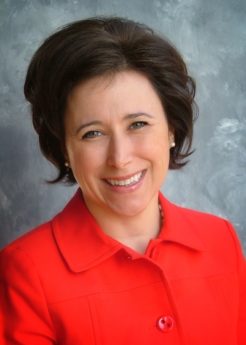 MARY MARTELL
MARY MARTELL
Stormont Vail Health
Mary Martell has been involved in health care for much of her career. For the past 14 years as the director of research services for Stormont Vail Health in Topeka, a program she feels passionate about. She knows that a strong research program benefits the organization’s overall community in various ways. It means providers who are having trouble finding treatment options for patients have access to alternative methods and this in turn advances medicine, providing hope where there hasn’t been any.
“There is a deep satisfaction that comes with helping people access potential preventions, treatments and cures for their diseases,” said Martell, who grew up in Kansas. “Clinical research is, by nature, about innovation and the hopeful possibility for others.”
Her personal experiences have helped shape her passion to seeking cures. “One of my five sisters was diagnosed with Type 1 diabetes while she was in college and I was in high school,” she said. “More than 35 years later, another of my older sisters ‘just knew’ her infant son was developing Type 1 diabetes and, unfortunately, her mother’s intuition hadn’t failed her. He was diagnosed at 18 months.” These events, she says, bookmark her journey.
She and her team have since supported several clinical trials for Type 1 diabetes and other diseases, many of which became FDA-approved and available to patients throughout the nation. Today, her nephew is in one of the more than 170 current clinical trials Stormont Vail supports. Like many, she says, he is thriving in the clinical research setting. His tests show his glucose levels have lowered.
Martell knew her job would be rewarding, but didn’t expect to be humbled by the patients. It is amazing to be “witnessing the endless generosity of volunteer research participants,” said Martell, who is also the past Chairperson of Stormont Vail’s Health Cultural Ambassadors.
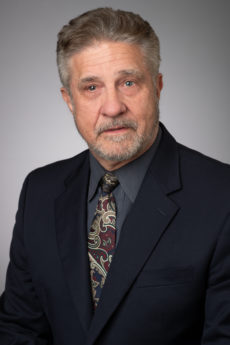 JAMES HARPER
JAMES HARPER
Research Medical Center
From his parents, James Harper learned the life lessons he lives today as the Director of Clinical Pastoral Education for Research Medical Center.
He was encouraged as a young man to visit the sick and elderly, and to take on service projects with his church. His passion for helping others as a young man led him to believe he one day would become a medical doctor, able to ease the body’s pain and suffering. But after taking a psychology course in college, Harper realized that the mind and spirit suffered as much as the body and needed healing, too. He went a different route.
Harper first earned a degree in psychology from the University of Georgia before graduate studies at the Southern Baptist Theological Seminary in Louisville. He explored ways to integrate behavioral sciences, theology, and psychiatric medical care into a unified philosophy, how to adapt what he learned to his own life, and how to help others with what he learned.
Following his Doctor of Ministry degree from the Midwestern Baptist Theological Seminary, he preached in the Southeast before finding his home as the director of clinical pastoral education at Brookside’s Baptist Medical Center. More than 30 years later, after Baptist Med Center’s merger with HCA Health Midwest, Harper is still ministering to the sick and has taught and influenced hundreds of clergy entering the clinical pastoral field.
A few decades ago, only a handful of medical schools included spirituality education in their teaching. Today, 90 percent of medical schools do. “There are struggles medicine or surgery cannot address,” says Harper. His program gives him the opportunity to put into practice his love and learning of God, psychology, and medicine.
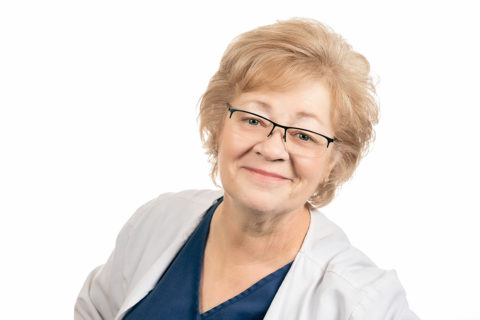 ELIZABETH WHELAN
ELIZABETH WHELAN
Cass Regional Medical Center
Elizabeth Whelan was born to be in health care. Her father was a cardiologist and her mother an obstetrics nurse. When she was a child, she tagged along as her father made house calls, and was always the doctor when playing with friends.
Heading to nursing school, earning her bachelor’s and then master’s in nursing was a natural. Whelan started her nursing career working in trauma units, but after having been diagnosed with gestational diabetes in all three of her pregnancies, she took her career in a different direction. She became a certified diabetes educator and stuck with it because in the fight against diabetes, she says, it’s important to “know your enemy.”
Whelan is now the Cass Regional Medical Center’s health and diabetes education coordinator and home supervisor.
“Working in diabetes, I see success in the face of the man who could not make his diabetes work, riddled with complications and feeling that there was no hope. We took his hopelessness and turned it into another chance,” she says. “We spent time with him, personal time, getting to know him and how he lived and then helping him to see change that would lead him to
control. He’s our family now.”
“I saw success in the face of the woman who was blind and struggling to manage her diabetes. So many challenges there but we pulled out every stop to make it work for her. My dietitians and I worked for several months with her, using various technologies for the blind and communicating with her daily so she could function independently and control her diabetes by herself.”
What drives her is knowing she is helping people build better quality lives. “Who wouldn’t want to do this?” She asks.
AUXILIARY STAFF
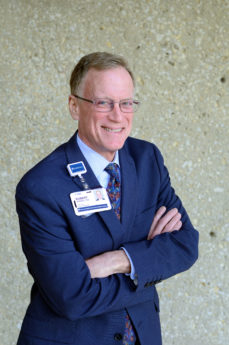 BOB SPANIOL
BOB SPANIOL
University of Kansas Hospital
Being a hero of health care takes many forms. Bob Spaniol takes the work of caring beyond the four walls of the hospital to the communities where patients live.
Spaniol, who has worked as a nurse, an adjunct professor and is now the director of the University of Kansas Health System’s privacy and security of patients’ health information, has spent countless hours championing the hospital’s “Christmas in October” program too.
Christmas in October assists elderly or disabled low-income families with home repair, maintenance, and upkeep projects each year. Spaniol selects qualifying houses and families in the neighborhoods surrounding KU health centers that need help.
Born in Kansas City, he went to Rockhurst High School and had always wanted to incorporate helping people into his career. He credits his high school senior project working at a halfway house for people with mental or developmental challenges as motivating him to go into healthcare. He later worked as an attendant in a psychiatric unit. Working that job “gave me insight to the empathy and dedication of the staff caring for those patients,” he said. “It convinced me I wanted to pursue my career in nursing.”
He has furthered his altruistic goals by taking ownership of the Christmas in October program. Recruiting volunteers, ensuring financial support and taking the time to make sure all stakeholders feel good about participating.
It is hard to estimate the number of people who have benefited over the years, but during the last two, 575 volunteers worked more than 4,000 hours improving 35 homes.
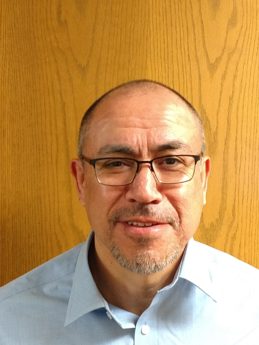 RICARDO TAPIA
RICARDO TAPIA
St. Mary’s Medical Center
Although much of what Ricardo Tapia does at St. Mary’s Medical Center is behind the scenes and goes unnoticed by patients, his work is integral to a well-run institution and allows care-givers to focus on what they do best: healing patients.
Tapia, who moved to this country from Mexico at age 11 and became a U.S. citizen in 1993, works in the Environmental Services Department. He is known for going above and beyond the call of duty to make sure all cleaning procedures are followed correctly and always volunteers to help if an occasion arises that needs special attention.
“He gives 200 percent,” said Raymond Klein, the environmental services and laundry manager. “He is my go-to guy.”
A few years back, Tapia noticed that the hospital needed its 2,000 square foot Education Center floor refinished, and volunteered to do it. He spent three days removing old finish and scratch marks from the tile, then applied coats of new finish. Working like a master craftsman, he ensured the floor was dust free and applied more than 20 gallons of finish. The result was a polished, mirror-like finish used by both hospital and outside groups.
Not only does Tapia complete nightly cleaning tasks, he provides excellent training and guidance to staff, especially new hires, with whom he spends time mentoring.
Tapia, who has worked at St. Mary’s for 17 years, said he became interested in hospital housekeeping when a friend in the field suggested he look into it. He took his friend’s advice and soon learned he enjoyed the work. “I enjoy the people I work with and the teamwork feeling,” he said. Tapia adds that he knows he is making a difference in the overall care of patients.
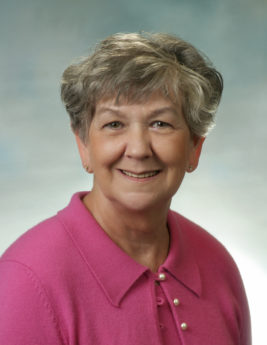 DEE SAGGARS
DEE SAGGARS
Olathe Health
Even when Dee Saggars was a nursing executive at Olathe Medical Center, she wouldn’t hesitate to roll up her sleeves, strip the beds or help with patients. She has always been hands on and led by example, say her coworkers. Saggars, who was one of 10 children and grew up in the rural town of Baileyville, Kansas, with a population of about 100, said she always knew she wanted to be a nurse and to make a positive difference in the lives of others. “My parents always encouraged us to help others,” she said.
Her future vocation was solidified when in high school she had minor surgery. “I was intrigued by symptoms, illnesses and diseases and saw these as a big puzzle to solve,” she said. “One needed to look at all the pieces and in cooperation with the medical team, try to solve the puzzle and restore good health to a patient.”
It was then that it became obvious to her that nursing was the perfect choice. It was a career path that would allow her to care for people and keep her working on those puzzles.
She is highly respected for both her calm and graceful demeanor and known for her relentlessness to making sure patients are receiving the best possible care. And now, even in retirement, her skill set and devotion to helping others is such that she is still making sure patients are receiving the best. After working for 39 years in various roles, she is now volunteering her time in the materials management department where she educates people about the items they are purchasing for clinical use. It is a position that was created just for her and truly a position only she can fill, say those at Olathe. It’s a role that allows Saggars to teach and connect with individuals.
“My hope and desire is that we will never forget the patient,” said Saggars, reflecting on her career and the future of medicine. “Technology is fascinating, but cannot improve upon direct communication and caring that is provided by the bedside healthcare provider.”
NURSING
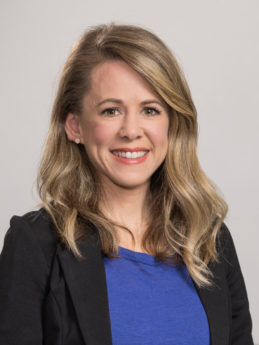 LINDSAY NORRIS
LINDSAY NORRIS
University of Kansas Hospital
Lindsay Norris has many stories of hope, determination and loss from her years as a registered nurse, delivering care to cancer patients. Some come from before she was diagnosed with stage III colorectal adenocarcinoma cancer and others come after.
She often reflects on one patient who she became close before her own diagnosis; they would sit and talk. He would tell stories of how he tackled his “bucket list” after being diagnosed and faced his fate head on. “He taught me to never be a victim to anything horrible that happens,” she said. Norris, who was born in Kansas City and now calls Olathe home, cared for him several times over the course of a few months before he passed away. “I didn’t know then how badly I would need to reflect on those lessons he taught me until I was facing a diagnosis myself.”
Norris was diagnosed with cancer in 2016. That changed her life in the obvious ways, of course, but through her honest and heartfelt reflections, it also shined a light on her personal journey. “From that moment, I made it my main focus to connect those with cancer with each other and those caring for them, helping health-care providers and care-givers more deeply understand the cancer experience.”
Norris, who went to Saint Luke’s College of Health Science, has been an oncology nurse in The University of Kansas Health System for about 11 years. Like many nurses, she was drawn to nursing so she could help people.
“I first told my family I wanted to become a nurse when I was 5 years old, after seeing a baby cousin have a stay in the NICU,” said Norris, who is the mother of two. “I immediately knew I wanted to help others.”
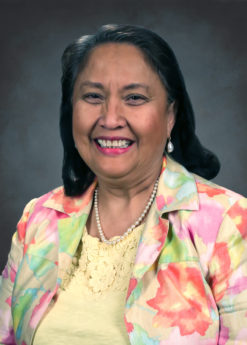 BABETTE ORLICH
BABETTE ORLICH
North Kansas City Hospital
She was the oldest of six and was told by her parents that she was the family’s role model, that her younger brothers and sisters would follow in her footsteps, and that it was imperative she go to college. And so she did.
Babette Orlich, who grew up on a small island in the Philippines, decided to pursue a career in nursing. “All my siblings followed me to college,” she said. “So it worked.”
In 1978, nurses in the Philippines were being recruited to work in the United States and it seemed like a good opportunity. Upon arriving here from her island home, Orlich had no idea it was in the middle of a continent without an ocean nearby. It was more a geographic shock than a culture shock, but Orlich adjusted and now could not think of living anywhere else. She married, had three children, and became one of North Kansas City Hospital’s premiere neonatal intensive care nurses.
As a NICU nurse, Orlich protects one of the most vulnerable patient populations. Many of her preemies suffer from a variety of symptoms and are often thought to be inconsolable.
But Orlich seems to have the magic touch. She can soothe these babies through swaddling, rocking techniques, and her calm, gentle speech. “I’m their parent, when their parent can’t be there,” Orlich says of her patients. “I’m their advocate.”
Orlich is active in the National Association of Neonatal Nurses where she shares her practical experiences in a best practices forum. She is a member of NKC Hospital’s Night Shift Global Council where she advocates on behalf of her charges. In 2015, based on her lifetime of nursing and observation, she helped NKC Hospital eradicate equipment related pressure injuries such as skin breakdown.
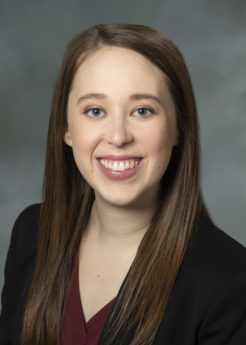 JENNIFER LOVE
JENNIFER LOVE
Saint Luke’s Hospital
Jennifer Love swore up and down she wasn’t going to be a nurse like her mother and instead was planning to pursue a career in education, but after tending to a few scrapes and bruises when working in a preschool, she realized nursing was probably for her.
A graduate of Saint Luke’s College of Health Sciences and a full-time cardiovascular recovery nurse at Saint Luke’s South Hospital in Overland Park, she is also a six-year veteran of the Consortium for Humanitarian Service and Education, an all-volunteer non-profit dedicated to the goal of training responsible, competent responders for work in humanitarian aid and disaster response.
It was after participating in an emergency training exercise with the consortium, where she was placed in charge of running a simulated field hospital that she understood nursing could be so much more than she had previously thought.
Love has served as an instructor, subject matter expert, safety officer, and operations officer in CHSE’s efforts to produce high level humanitarian and disaster response training simulations. The primary goal of CHSE is “to prepare the willing” and offer students and practitioners of any experience level an opportunity to learn skills relating to humanitarian aid, disaster response, conflict resolution, leadership, teamwork, and communication in austere or challenging environments.
Under Love’s guidance, nearly 600 nurses and first responders in greater Kansas City have received high intensity, realistic training. The CHSE and the Northwest Missouri State University’s Emergency and Disaster Management Program have created one of the nation’s largest non-military, multi-day, experiential field training.
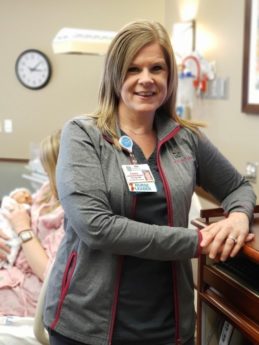 CASEY SHELINE
CASEY SHELINE
Menorah Medical Center
Being a labor and delivery nurse has never been easy. There is, of course, the health of the mother and the newborn baby to worry about. But there is also the fear and anxiety that accompany many a family as the new-mother-to-be is taken to the delivery room.
Casey Sheline, a labor and delivery charge nurse at Menorah Medical Center in Overland Park, is known for a bedside manner that is second to none.
Her boss describes Sheline as someone who “understands and knows what new mothers need even before they do” and opines that she “is truly the best in taking care of mothers and babies.”
Sheline, who received her nursing degree from Baker University, simply makes worried new mothers and their families feel better—or at least worry less.
One thankful patient wrote, “She cares and you know it. Thank you Casey—for being the kind-hearted gentle spirit who tackled many things on my to do list and for moving the bull out of the way. You’ve made a huge difference in this time of my life.”
Accompanying her empathetic personality and excellent bedside manner is Sheline’s competence across all levels of nursing. Not only is she known as an excellent technical nurse, but as a mentor to the younger staff, able to show them how to get things done properly and efficiently all the while making patients comfortable. She often acts as a liaison—and at times an advocate—with the hospital’s managers and directors to ensure that each new mother and baby gets exactly what they need, when they need it.
 MONICA POWERS
MONICA POWERS
AdventHealth Shawnee Mission
Monica Powers wanted to be a nurse as long as she can remember. In fact, her mother recently found a Dr. Seuss “About Me” book that she filled out when she was in kindergarten declaring her nursing ambitions.
But it was in the fourth grade as her father, who had been diagnosed with stage 4 non-Hodgkin’s
lymphoma, was being wheeled to the operating room that Powers was first exposed to the difference a nurse can make in the lives of patients and their families.
A nurse took the time to sit down with her and her little sister and reassure them their father was going to be all right.
“I always wanted to make my patients and their families feel the way this nurse made us feel as little kids,” said Powers, who was born and grew up in Iowa and then moved to western Kansas.
Powers has been a driving force at AdventHealth Shawnee Mission for more than a decade. She started as a nurse manager in surgery, eventually becoming the director of surgical services and is now part of the organization’s administration team as assistant chief nursing officer. Co-workers see her as a pillar of professionalism and integrity, able to simultaneously meet the needs of patients as well as care-givers. She is described as a leader who is approachable and kind, yet driven for success.
Powers was behind the hospital’s internal food pantry. She realized that even though people are employed, it doesn’t always mean their needs are being met. It has helped fellow staffers when they have needed it most.
Powers was also a member of the 2019 Centurion Leadership Program of the Greater Kansas City Chamber of Commerce.
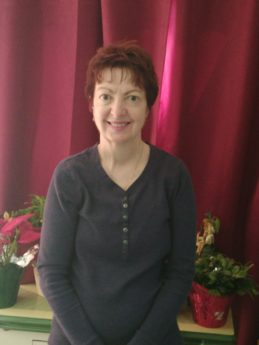
dig
VALERIE WILSON
St. Joseph Medical Center
When Valerie Wilson was just starting off in healthcare, she went to check on a patient who was in
critical condition, glancing at the monitor she saw he was in cardiac arrest. Wilson acting swiftly with her team, was able to save him.
This life-saving experience, her first of many in the years to come, solidified her determination to
continue on her nursing path, and work in the intense environment of the ICU.
“I’ve been a nurse for 43 years,” said Wilson, who has worked at St. Joseph Medical Center in south Kansas City for 30 of those years. “I love it. I love the critical thinking aspect of it, and I love that I am helping people.”
It was Wilson’s grandfather who started her thinking about nursing as a career path when she was a child. He would always tell her he thought she would be a good nurse.
Wilson, who grew up in Maryland and moved to Kansas City when her husband received a job offer here, is a constant source of inspiration for those she works with. “This nurse has been my friend, my mentor, my go-to person for some 20-odd years. She is absolutely amazing,” said fellow St. Joseph Nurse Deborah Hamilton. “Everything from her clinical knowledge to her bedside manner is
second to none. She is compassionate, smart and has a driving force about her that helps her get everything done.”
An ICU nurse requires technical skill, critical thinking, speed, and the ability to handle lots of stress. “I’m a cup is half full person,” said Wilson, when she reflects on how she keeps up her positive attitude, helping her co-workers and patients when the pressure is on. “You either love it or you don’t, you have a passion for it, or you don’t.” Wilson clearly loves the work and St. Josephs. “I’ve stayed at St. Joe for all this time because of the people that I work with, it’s a family here.”
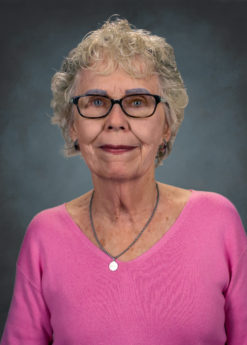 VERDA HYLAND
VERDA HYLAND
North Kansas City Hospital
Nurse Verda Hyland’s relationship with North Kansas City Hospital spans five decades. Before retiring and taking on a volunteer leadership role, she worked as nurse, holding several nursing director roles at the hospital’s progressive care and intensive-care units.
Like many nurses, Hyland, who was born in northern Missouri, chose the profession because she wanted to help people. It is this same driving desire that has her taking on volunteer leadership roles at the hospital since she retired. She now serves as the hospital’s auxiliary president, which operates the hospital’s gift shop and conducts fundraisers. Hyland manages a team of 120 auxiliary members.
Dynamic and civic-minded, she is mainly responsible for overseeing fundraising for the hospital. Under her leadership, the auxiliary has held several successful events and gifted the hospital $200,000 in the past two years. These funds supply various departments with important resources, whether that be equipment or staff educational opportunities.
She finds her current role extremely rewarding because the equipment the auxiliary has been able to purchase ensures the hospital is offering the best possible care.
In recent years, auxiliary purchases have included everything from cardiac monitors to state-of-the-art infant swings and much more.
Verda also serves on the Patient Experience Board, which gives Verda insights about patient needs and expectations. “North Kansas City Hospital is an amazing community,” Verda said. “And that I can continue to be involved and helpful is wonderful.”
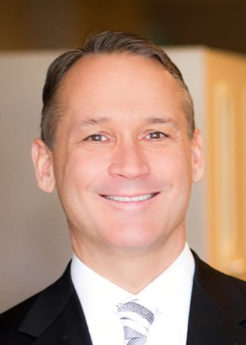 BILL BUSCH
BILL BUSCH
TeamSmile
Dentist Bill Busch is the creator and co-founder of TeamSmile, a non-profit organization where dental professionals and professional athletes team up to provide dental care to at-risk children.
Busch, who has been in private practice since 1991, grew up on the east coast and received his doctorate from Fairleigh Dickinson University, College of Dental Medicine in New Jersey. He made his way to the Midweåst via a residency program at the VA Medical Center in Topeka.
In 2005, Busch saw a need for dental care in some of Kansas City’s poorer areas. He created TeamSmile as a way to help kids gain access to better oral hygiene.
“The work we do is immediate and has a tremendous, positive impact on children’s lives that can last their whole lifetime,” he says. “I believe that everyone should have the chance to smile with confidence.”
He feels fortunate that he is able to practice what he is passionate about and TeamSmile allows him to give back. In his first TeamSmile event, he was able to partner with the Chiefs in a one-day clinic where they screened, treated and educated more than 100 children on proper dental care. The event was such a success it now occurs annually.
Since its inception, TeamSmile has helped thousands of children, by holding day-long clinics and providing more than $15 million in free dental care and oral health education.
Exposing children to dental care and teaching them how to care for their teeth, gets right to the heart of the matter for Busch, who is a lifelong learner. In 2009, he was one of only 150 dentists around the country to achieve Mastership in the Academy of General Dentistry.
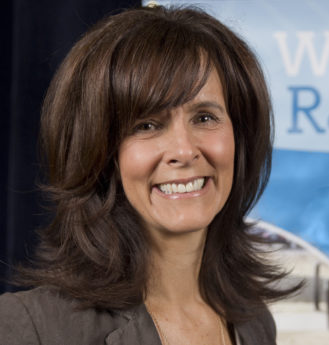 KELLY RANALLO
KELLY RANALLO
Turner Syndrome Global Alliance
In 2008, Kelly Ranallo brought her daughter to Children’s Mercy Hospital with concerns over a number of health issues, eventually leading to a diagnosis of the rare genetic disorder, Turner Syndrome. Although Ranallo has a background in physical therapy and was comfortable navigating within a health-care environment, she found that her daughter’s needs were only being addressed by individual specialty areas rather than in a coordinated care environment, making it difficult to look at the whole picture.
So rather than being discouraged and do nothing, Ranallo took action. She had a vision to create a more connected care model, and began working with people at the hospital and others in the community affected by Turner Syndrome to make this a reality. She joined the Family Advisory Board at Children’s Mercy Hospital and set about building a Turner Syndrome Clinic from within the hospital that could provide comprehensive services. Her vision came to fruition when, in 2010, the Great Height’s Turner Syndrome Clinic opened. The clinic has become a national model for providing comprehensive services, providing coordinated appointments with specialist, family education seminars, and provides social opportunities for those with Turner Syndrome.
In 2014, Ranallo took her advocacy even farther and started the non-profit Turner Syndrome Alliance with a mission to “connect, science, resources, and funding to the Turner Syndrome Community.” In its first year of operation, the nonprofit raised $50,000 and connected the organization to the Kansas City community by hosting a fundraiser and has been growing ever since.
Because it has been so important for Ranallo to connect with others whose families are affected by Turner Syndrome, she also launched RareKC. Through it, she is trying to create a network so that people can share information and resources about rare disorders and diseases. The goal is to connect people who have similar diagnosis.
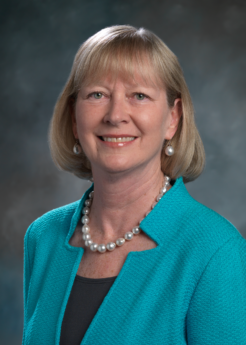 PEGGY SCHMITT
PEGGY SCHMITT
North Kansas City Hospital
As a young girl growing up in St. Louis, Peggy Schmitt didn’t think going to college was even a possibility.
“No one in my family had gone to college and we didn’t have much money. I remember that moment when I realized that it was something that I could do,” she recalls.
A love of science and a desire to help people made her think nursing would be the perfect career. She received a BS in nursing from the University of Missouri and after working as a nurse for several years at Truman Medical Center, she decided to head to law school, not because she didn’t enjoy nursing but rather she wanted to combine an interest in the ethical and legal aspects of health care with her desire to improve people’s lives.
After earning her JD from Yale, she returned to Kansas City and worked at the Spencer Fane law firm representing healthcare clients. It was Schmitt’s clinical experience and legal training that gave her a unique perspective and made her a natural fit in 1993 for her first role at North Kansas City Hospital. She served as the hospital’s vice president and general counsel before being named CEO in 2012.
“One of my goals was to continue promoting a hospital-wide culture of respect and collaboration to ensure the best patient outcomes and the highest level of patient care,” said Schmitt of when she embarked in her current role as NKCH’s top executive. And she has succeeded on many levels. During her tenure, NKCH established an oncology partnership with The University of Kansas Cancer Center and earned a Magnet designation in 2018 for nursing excellence. Only 8.6 percent or 474 hospitals nationwide have a Magnet designation.
“The opportunities that I have had to serve and lead this incredible organization have been very meaningful to me,” said Schmitt, who will retire this spring.
As for future plans, she said, “my plans are to have no plans.”
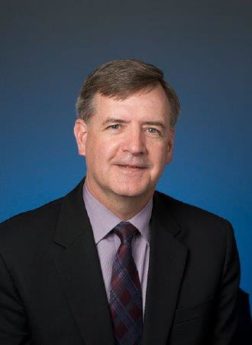 ROBERT MOSER
ROBERT MOSER
Univ. of Kansas Health System
Robert Moser began his medical career following the path of his great-grandfather, a country doctor in the Oklahoma territory. After medical school, Moser returned to his rural hometown of Tribune, Kan., and practiced family medicine there for 22 years.
Hometown experiences shaped his desire to go into medicine. He knew he wanted to help people and he enjoyed math and science in school, but when Moser had to write about the training and life of physicians for a middle school English project, he solidified his desire to pursue a health career. In high school, he knew he wanted to be a physician. Moser attended the KU School of Pharmacy, KU School of Medicine, and completed his residency in family medicine at the Smoky Hill Family Practice Residency in Salina.
During his private-practice years, he advocated for and developed programs and services specific to the needs of those living in rural areas. He served as president of the Kansas Academy of family Physicians and on numerous committees at the state and national level including the Kansas Rural Policy Commission and the Veterans Rural Health Advisory Committee.
In 2010, Moser left his hands-on rural practice for academia, allowing him to integrate the health-care of rural communities into the training programs of future physicians. In 2011, he was appointed as the Secretary and State Health Officer for the Kansas Department of Health and Environment, where he oversaw the creation of KanCare.
Following his tenure at KDHE, Moser became executive director of the University of Kansas Hospital’s Heart and Stroke Collaborative. Most recently, Moser was appointed dean for
the University of Kansas School of Medicine.
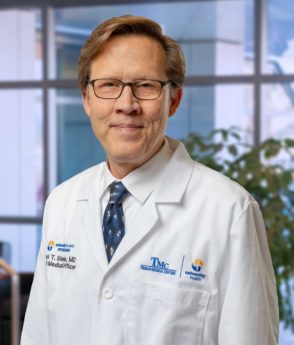 MARK STEELE
MARK STEELE
Truman Medical Centers
Becoming a doctor was definitely in his blood. Not only was Dr. Mark Steele’s father a physician,
but so are three of his four brothers.
Like most physicians, he says, he not only had an interest in science, but of helping people as well. He was drawn to emergency medicine because of the wide variety of medical conditions the discipline exposed him too.
“Every patient you see is new and interesting because you have to try to figure out what is causing the patient’s symptoms/problem,” said Moser, who grew up in St. Louis and came to
Kansas City to attend UMKC’s School of Medicine.
He completed his residency at Truman Medical Centers. He did not make a conscious decision to pursue an academic career; he had always figured he would go into private emergency medicine. But when he was offered a teaching position at Truman he decided to accept the job, he saw it as a challenge and something outside of his comfort zone.
“I didn’t think I was cut out to be an academic physician,” said Steele, who started off as a junior faculty member then served as the Emergency Medicine Student Clerkship Director and Vice Chairman of the Department. It turned out to be a good move and he credits those early leadership opportunities as serving as a springboard to his future roles. “I’m so glad that I accepted because it led to so many rewarding opportunities,” said Steele, who eventually became the department chair. He is currently serving as the Medical Center’s Executive Chief Medical Officer.
Steele is a member of a number of professional societies. He was elected as a member of the American Board of Emergency Medicine in 2003 and then served at the board’s president in 2011.